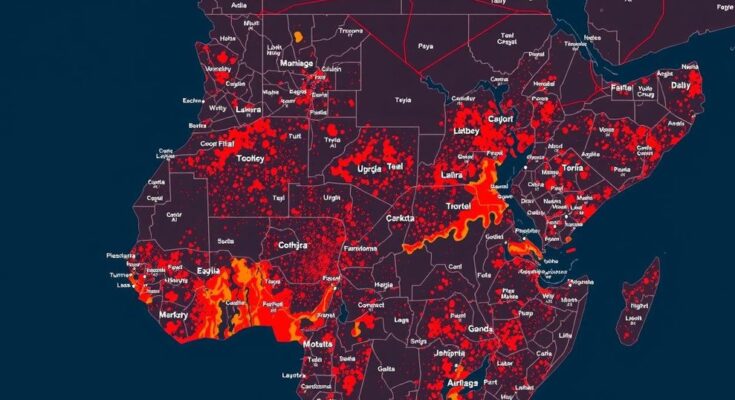Mozambique faces a dual crisis of internal displacement and climate-related challenges, with 25,000 refugees and 716,878 IDPs. UNHCR and partners provide essential assistance, emphasizing safe and dignified return movements while supporting community resilience and inclusion in national systems for displaced populations.
Mozambique currently hosts around 25,000 refugees and asylum seekers, alongside facing a significant internal displacement crisis, with 716,878 individuals displaced due to violence from non-state armed groups and the severe impacts of climate change. The country has been particularly affected by recent tropical cyclones, notably the double landfall of Tropical Cyclone Freddy in early 2023, which, compounded by Tropical Cyclone Gombe’s aftermath a year prior, has disrupted the lives of over one million people and resulted in the displacement of approximately 184,000 individuals.
The United Nations High Commissioner for Refugees (UNHCR), in collaboration with various stakeholders including the Mozambican Government, actively provides essential protection services and assistance to refugees, asylum seekers, internally displaced persons (IDPs), and host communities. Their multifaceted approach aims not only to address immediate humanitarian needs but also to foster community resilience and facilitate sustainable solutions for those affected by displacement. In the last year, approximately 610,981 individuals have returned to their places of origin but often find themselves facing inadequate services and harsh living conditions.
UNHCR emphasizes that all movements of refugees and IDPs must be conducted in an informed, safe, voluntary, and dignified manner. Furthermore, the agency advocates for the inclusion of all displaced individuals within national systems and services, integrating them into national data frameworks as well as climate-related response and contingency plans. Concurrently, UNHCR is intensifying its engagement with development and peace-building organizations to ensure that the needs of displaced and returned populations are adequately addressed within their programming.
This operational update from UNHCR sheds light on the pressing humanitarian situation in Mozambique, highlighting the dual crises of mass displacement and environmental challenges. The ongoing conflict and repeated climate disasters have exacerbated vulnerabilities among affected populations. Mozambique’s geographical vulnerability makes it one of the countries hardest hit by climate phenomena, necessitating urgent humanitarian and developmental interventions. The role of UNHCR and its partners is crucial in providing protection and assistance to those displaced, while also striving for inclusive practices in national systems to ensure the well-being of all affected populations.
In conclusion, the humanitarian landscape in Mozambique remains grave, with significant challenges stemming from both violence and environmental disasters. UNHCR’s efforts focus on ensuring the protection and dignified return of displaced individuals, while also promoting community resilience through inclusive strategies. The collaboration with various stakeholders is vital to address the complex needs of refugees, asylum seekers, and IDPs effectively, fostering an environment where all individuals can rebuild their lives with dignity.
Original Source: reliefweb.int




